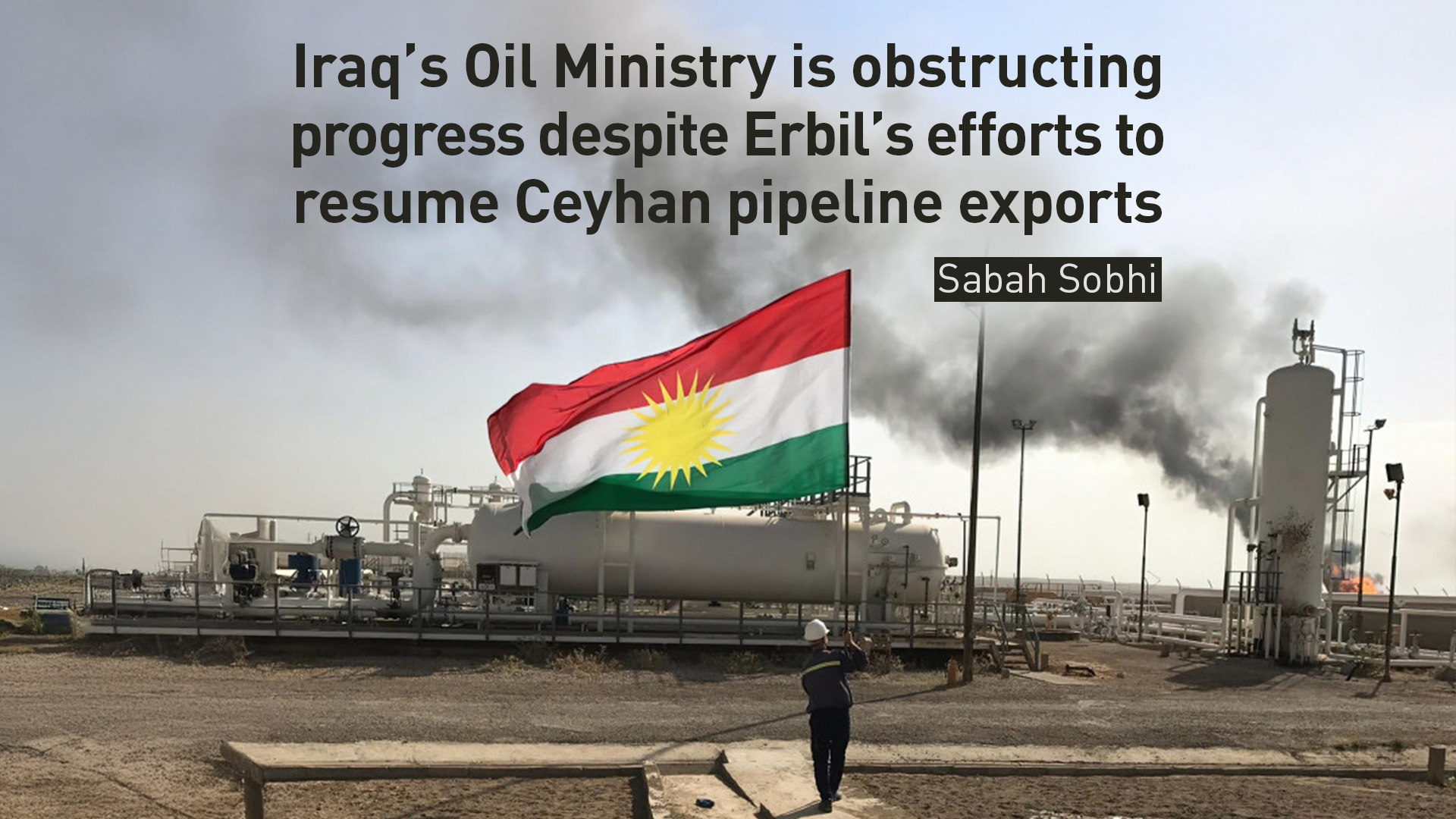Pipeline Politics: MP Calls for Dialogue, Defends Kurdistan Region's Rights
Highlighting what he sees as the Region’s consistent efforts toward resolution, Dr. Sabah Subhi emphasized that the KRG has made genuine attempts through official delegations over the past two years to find common ground with Baghdad.

By Kamaran Aziz
ERBIL (Kurdistan24) – As tensions simmer over the stalled oil exports from the Kurdistan Region, a member of Iraq’s Parliamentary Oil and Gas Committee has sharply criticized the Iraqi Ministry of Oil for what he describes as a “selective and legally flawed” approach to the ongoing dispute.
In a detailed statement issued Friday, Dr. Sabah Subhi offered a firm defense of the Kurdistan Regional Government’s (KRG) actions and called for immediate, constructive dialogue to resolve the impasse.
The statement came in response to remarks published by the Ministry of Oil on its official website, which, according to Dr. Haidar, misrepresent both the legal basis of the KRG’s oil production and the nature of the ongoing negotiations.
Highlighting what he sees as the Region’s consistent efforts toward resolution, Dr. Sabah Subhi emphasized that the KRG has made genuine attempts through official delegations over the past two years to find common ground with Baghdad. “This clearly demonstrates the Region’s goodwill and the commitment of operating companies to reach an agreement in line with constitutional and legal frameworks,” he noted.
Subhi took particular issue with the Ministry’s interpretation of Article 12 of the 2023 Federal Budget Law, arguing that it overlooks crucial constitutional provisions—specifically Articles 111 and 112—that recognize the Kurdistan Region’s authority to manage oil fields discovered after 2005. This legal foundation, he pointed out, has been upheld in court.
“The oil companies operating in the Region are doing so based on legally binding contracts with the KRG,” he said, referencing a December 18, 2024 ruling by the Court of Appeals, which was subsequently upheld after the Ministry of Oil’s cassation request.
He also rejected accusations of illegal oil sales, asserting that all production in the Region complies with local laws and serves domestic consumption needs. “Official production data is regularly submitted to the federal government through reports issued by the KRG’s Ministry of Natural Resources,” he added.
Dr. Haidar questioned the timing and intent behind the Ministry’s recent statements, which he said risk damaging the growing cooperation between Baghdad and Erbil. “We are committed to protecting the wealth of the Iraqi people,” he said. “We therefore question why such statements—which risk undermining the improving relationship—are being made at a time when both sides are moving toward greater cooperation and mutual understanding.”
However, the Iraqi Ministry of Oil, in its official response on April 4, firmly rejected allegations made by the Association of the Petroleum Industry of Kurdistan (APIKUR), stating that the Ministry has shown both willingness and initiative to resume oil exports through legal and nationally beneficial mechanisms.
The Ministry reaffirmed its commitment to the amended Federal Budget Law adopted on February 2, 2025, which includes provisions for compensating the KRG for production and transportation costs and mandates delivery of all oil produced in the Region to the State Oil Marketing Organization (SOMO) under a transparent and internationally supervised mechanism.
According to the Ministry’s statement, Prime Minister Mohammed Shia al-Sudani has reiterated that selling oil outside the SOMO framework constitutes an infringement on national rights and undermines legal state mechanisms.
The Ministry emphasized that all negotiations must be conducted in alignment with the revised law and international norms, and expressed concern that “unreasonable demands” from certain parties have disrupted progress.
Adding further urgency to the debate, the Association of the Petroleum Industry of Kurdistan (APIKUR) released a statement on Thursday via the social media platform X, stressing the financial toll the prolonged suspension of oil exports has taken on member companies.
APIKUR revealed that its members have placed $400 million in investments on hold due to the continued closure of the Iraq–Turkey Pipeline (ITP), and warned that resuming these investments hinges on a resolution that respects their contractual rights.
“Our investments have been fundamentally harmed by the closure of the Iraq-Turkey pipeline and being forced to sell at a significant discount to international market prices,” the statement said. APIKUR emphasized that its member companies have been actively engaged in negotiations with the Iraqi government, ready to resume exports once assurances are provided regarding the legal recognition of their contracts.
“We are ready to resume exports upon reaching agreements with the Government of Iraq and Kurdistan Regional Government. Protecting our rights and investments is essential,” the group stated, underscoring that the path forward depends on a negotiated solution that restores confidence and legal clarity.
Despite mutual criticisms, both Dr. Subhi and the Ministry of Oil expressed openness to further dialogue.
The Ministry called for an urgent meeting with all relevant parties to create a “clear mechanism” that ensures Iraq’s rights and investor commitments are respected. Dr. Subhi, in parallel, underscored that “only through sincere, results-oriented dialogue can the issue be resolved—particularly with regard to the swift and much-needed resumption of oil exports via the Kurdistan–Ceyhan pipeline.”
“The challenges we face cannot be resolved through statements and accusations,” Dr. Subhi concluded. “They require action and honest engagement in the national interest.”
As Iraq continues to navigate its post-conflict reconstruction and economic recovery, the resolution of the long-running oil dispute between Erbil and Baghdad remains central to restoring fiscal stability and ensuring equitable resource distribution across the country.